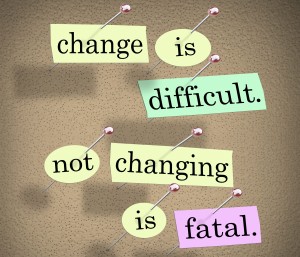Your #Career : 4 Signs That Your Job-Search Strategy Isn’t Working… IF you’re Not Getting Results, it’s Time to Change your #JobHunting Methods.
Do you have the feeling that your job-search strategy could stand a few tweaks (or maybe even a substantial overhaul)? When you spot any of the following scenarios, consider them possible red flags worthy of investigation.
As Mathison succinctly points out, “Interviews are hard-won. Bring your best game.”
Here are four signs that it’s time to rethink your job-search strategy:
1. YOU’RE NOT GETTING ANY RESPONSES
Silence is actually a loud shout-out that something in your hunt needs adjusting. Perhaps you haven’t been putting much effort into tailoring cover letters to specific positions (or haven’t been composing them at all). Maybe your resume doesn’t grab the attention of hiring managers because it lacks action verbs and quantifiable examples of your accomplishments. Thoughtfully examining your material, preferably with help from another set of trusted eyes, may make a huge difference.
Another culprit could be relying too much on internet job boards. As noted by Megan Walls of Walls Career Coaching, “By only applying online, you limit your chances of getting a job. It’s estimated that 85% of jobs are filled through networking. So devote a good portion of your job search to contacting your network, such as family, friends, classmates, past employers, and LinkedIn connections.”
Consider too if you might need to up your efforts.
“It is time to rethink your strategy when you are looking for a full-time job with a part-time job search,” says Duncan Mathison, co-author of Unlock the Hidden Job Market. “And don’t confuse time spent worrying or waiting to hear back from an employer as ‘search time.’ Track your actual time in your job search.”
Like this Article ? Share It ! You now can easily enjoy/follow/share Today our Award Winning Articles/Blogs with Now Over 2.5 Million Growing Participates Worldwide in our various Social Media formats below:
FSC LinkedIn Network: www.linkedin.com/in/fscnetwork
Facebook: http://www.facebook.com/pages/First-Sun-Consulting-LLC-Outplacement-Services/213542315355343?sk=wall
Google+: https://plus.google.com/115673713231115398101/posts?hl=en
Twitter: Follow us @ firstsunllc
Question: Want the ‘the best/current articles/blogs on the web’ on Job Search, Resume, Advancing/Changing your Career, or simply Managing People?
Answer: Simply go to our FSC Career Blog below & type(#career, #leadership, #life) in Blog Search: https://www.firstsun.com/fsc-career-blog/
What Skill Sets do You have to be ‘Sharpened’ ?
Continue of article:
2. YOU’RE HAVING TROUBLE FINDING “GOOD” JOBS FOR WHICH TO APPLY
Congrats on being specific about what you want and not wasting time applying for any old thing. Now make sure you’re looking in the right places and reaching out appropriately.
“If you have targeted employers, you should apply directly to the website, through networking contacts, or even suspected managers in the functional area of your job,” Mathison says. “Trade and professional associations often have job boards. If you still draw a blank, your professional network may be able to give you insight on any hiring activity.”
3. RECRUITERS ARE REACHING OUT WITH IRRELEVANT JOBS
Hearing from a recruiter can be flattering, but it does no good when the opportunity presented bears little resemblance to what you desire.
Evaluate your resume to ensure clear objectives and eye-catching examples that support candidacy for the type of position you want. And if you haven’t visited your LinkedIn profile lately, be sure what’s there accurately reflects your current career aspirations.
4. YOU GET INTERVIEWS BUT NOT OFFERS
Perhaps the most frustrating of all situations is when employers do call you in but fail to offer a job. Though it can be difficult to decipher the reasons behind their decision, rethinking your interview preparation and presentation is necessary when rejection keeps happening.
Considerations include:
- Are you dressing appropriately?
- Have you done your homework on the company and the industry?
- Are you smiling and using other positive body language? (Videotaping a mock interview with a friend can be revealing.)
- Have you prepared a list of thoughtful questions?
- Are you ready to answer standard questions, including ones about weaknesses?
- Are your references enthusiastic about presenting you in the best possible light?
FastCompany.com | March 2, 2018 | BY BETH BRACCIO HERING—FLEXJOBS2 MINUTE READ
















